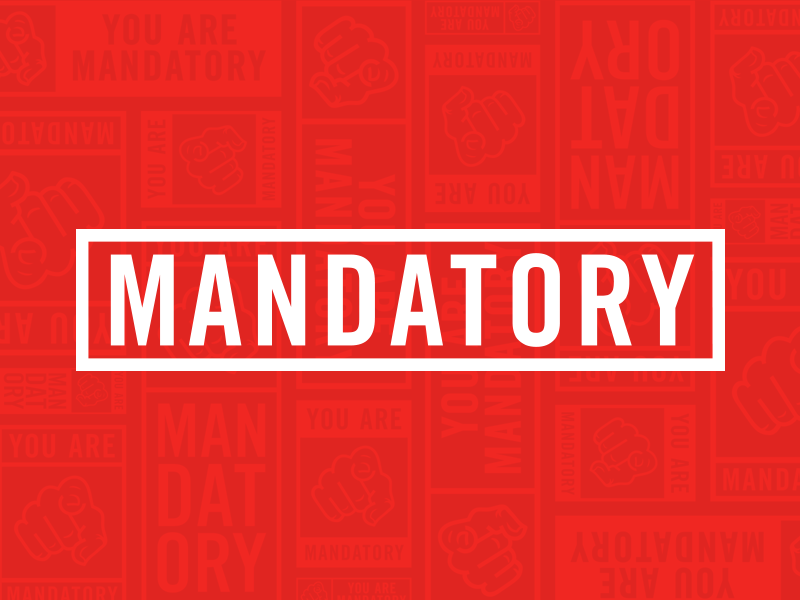Swearing can be strangely satisfying. Whether you’ve stubbed your toe on the corner of that motherf—ing table or you’re telling your bastard of a boss to go to hell, swearing tends to address the severity of a topic or situation in an effective way — an effective way that can feel damn good. But why is that? My best guess would be that curse words can be considered taboo, and by uttering these sacred terms, we sort of relish in its rebellion, because we all know if we ever said these words as kids, mom would’ve tanned our hides.

But where did these all bad words come from? Like, who was the first guy to shout “f—!” after he looked into his empty wallet on a Sunday morning? Or the first guy who “had to take a sh–” instead of simply “going to the bathroom.” I investigated the origins of 10 common swear words and found many are surprisingly rich in history with speculative origins. Based on the best sources available on the Internet, however (Dictionary.com and Etymonline.com), I’ve determined the origins of our most precious curse words, which you can see below.
Fuck
The undisputed king of all curse words historically began as an everyday term meaning “to strike or penetrate.” The term also became slang, meaning “to copulate,” in 1598, and it still means that today. When the word became part of the English language in the late 15th century, it was banned from the Oxford English Dictionary as it was viewed as vulgar. For centuries, it was illegal to so much as print the word, which is why the infamous f-word is considered one of the worst.

Ass
As expected, the word ass comes from the word “donkey,” an animal notorious for being both clumsy and dumb, and originated in the late 15th century. From there, “to make an ass of oneself” (to call someone an “idiot” or “delinquent”) became a popular phrase in the 1580s. As for slang representing one’s backside, the term “arse” began to describe a person’s posterior around 1930, and, over time, the pronunciation of the term became “ass,” as people decidedly dropped the “r” for reasons unknown.
Bitch
Originally, the term “bitch” was used to describe a female dog, and it still is. But the offensive term we use today started circa the year 1400 to describe “a lewd or sensual woman,” which then evolved to a less attractive term for “a malicious or unpleasant woman.” By the 1800s, the word grew even uglier and was considered “the most offensive appellation that can be given to an English woman” by the Dictionary of the Vulgar Tongue in 1811. The verb, meaning “to complain,” came to light in the 1930s.

Shit
The word shit traces back to the 14th century and derives from the Old English term for the word “scite” (meaning dung) and “scitte” (which means diarrhea). Not that fun, is it? Shitty, really.
Hell
The word for the homestead of the evil dead derives from the Old English hel, helle (dating from about 725 AD to refer to a world populated by the dead). Essentially, the word hasn’t changed much in meaning whatsoever. In a Biblical sense, the use of Hell is speculated to derive from Old Norse “Hel,” which was the name of Loki’s daughter in Norse mythology, who was an evil ruler of the dead. Badass.
Bastard
Bastard was and is still considered a term for an illegitimate child. This began as far back as the early 13th century. Many sources believe the term derives from “corps de bast,” a division of the army who would arrive in town the day before (and left the day after) army troops in order to deal with different military provisions. These men had two days of “access” to women in town. This then earned the division the distinction of most likely to be the men responsible for children born out of wedlock in whichever town they visited. As for its more abusive term for a man, that didn’t start until around 1830.

Damn
I had never considered “damn” a swear word, but apparently the Internet does, so here goes nothing. Damn comes from latin damnare, meaning “to condemn or inflict loss on,” and it was actually a pretty badass word as far back as the late 13th century, when it represented damage, hurt, harm, or injury. In other words, there are absolutely no positive connotations for this seemingly innocent word.
Cunt
This is quite possibly the most offensive word in the English language. It’s also a term that nobody is entirely sure the origins of — though it always had ties to female genitalia. The most popular belief is that cunt derives from the Proto-Germanic word “kunto,” which also appears as “kunta” in Old Norse. The word’s more offensive connotation was founded in print back in a 1325 Middle English manuscript, titled “Proverbs of Hendyng,” which translated to: “Give your cunt wisely and make your demands after the wedding.” Sound advice, really.

Cock
The word “cock” originally referred to a male chicken (rooster) or bird but became slang for penis around 1610.
Tit
This one isn’t necessarily a curse word, but it’s a term for the part of a lady men find dear, and it isn’t the most democratic term one can use. As you might have guessed, “tit” became modern slang for “teat” (you know, like, on a cow) around 1928. It originally meant nipple (not breast), but nowadays, the word pretty much encompasses the entire boob.


